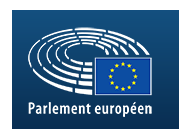Document type : Written answer from the European Commission
Authors: Question: Annika Bruna (ID), Aurélia Beigneux (ID), Elżbieta Kruk (ECR), André Rougé (ID), Rosanna Conte (ID). Answer: Mr Sinkevičius on behalf of the European Commission
Question: New kinds of animals are being kept as pets. Mostly, these are reptiles, exotic birds and rodents, but other species are also kept. They are captured in their natural habitat without regard to biodiversity: examples thereof are the Sakalava gecko (Madagascar), the juvenile green tree python (Indonesia) or the grey parrot (Gabon).
These new kinds of pets are mistreated in two ways:
During their carriage to Europe. Sometimes birds are drugged and carried in hand luggage in order to smuggle them through airports. For every bird that survives the journey, five die en route.
During their captivity. These animals need the right living conditions, an in-depth knowledge of their species and time spent with them if they are to survive in captivity. Without this, they die — 75 % of reptiles die in their first year of living with a private individual — or are abandoned in the countryside, with the risk that they may become an invasive species, as has happened with the red-eared slider or the rose-ringed parakeet.
Would the Commission be prepared to draw up, with the Member States, a closed and restrictive list of wild species that are authorised for keeping as pets?
Answer: Imports into the EU of wild-caught animals protected under the Convention on International Trade in Endangered Species of Wild Fauna and Flora (CITES) such as the African grey parrot or the Green tree python are closely monitored and only permitted if all conditions laid down in the EU Wildlife Trade Regulations, implementing CITES in the EU, are met. Furthermore, if the transport by air is not carried out in accordance with the standards adopted by the International Air Transport Association (IATA), any CITES permit automatically becomes invalid, which can lead to the confiscation of the animals in question.
Member States’ authorities are responsible for the enforcement of the abovementioned regulations, both at the EU borders as internally, and they have the necessary means to act on such infringements. Combating such illegal trade remains a priority for the EU, as demonstrated by the EU Action Plan against Wildlife Trafficking, as well as by the recently adopted EU Strategy to tackle organised crime.
As pointed out in previous replies (such as P-002424/2020) to similar questions, moving towards a positive list of animal species authorised for international trade — whether used as pets or otherwise — would be a systemic change both in the EU and in international law (CITES). While some Member States have already adopted such lists, the Commission does not currently plan to put forward such a proposal.






